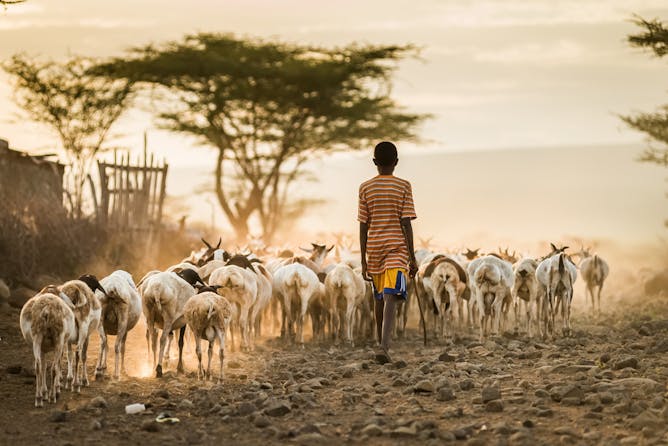|
Disease outbreaks have devastating, lingering effects. They can take families, communities and countries years to recover. William B Karesh explains how using the combined knowledge and experience of medical doctors, veterinarians, environmental scientists and civil society can help to pre-empt outbreaks.
Kenya has a plan to privatise some of its prisons, an approach that’s already used in several parts of the world. Gráinne Perkins discusses the proposal with a justice expert, who suggests Kenya must guard against rushing into privatisation.
Today we extend our condolences to the family, friends and colleagues of Sibonelo Radebe, The Conversation Africa’s business and economy editor, who died tragically in a car accident this week. We join hands with all those mourning the loss of a dear colleague and friend.
|

Rift Valley fever is a disease passed from mosquitoes to animals then to people.
Shutterstock
William B Karesh, Icahn School of Medicine at Mount Sinai
Outbreaks of zoonotic diseases call for a collaborative approach to surveillance.
|

Private companies can provide services - like catering - for inmates.
LightField Studios/Shutterstock
Gráinne Perkins, University of Cape Town
Turning prisons into a market opportunity could open them up to corruption.
|
Politics + Society
|
-
Tuba Turan, Altinbas University
Study suggests that the UN's own principles sometimes prevented it from living up to its objectives
|
|
From our international editions
|
-
Nick Timms, Curtin University
A meteorite hitting Earth at many kilometres per second puts 'ground zero' target rocks under immense pressure. A shock wave faster than the speed of sound can result – and new materials created.
-
Madhukar Pai, McGill University
We cannot end TB with century-old technologies and poor quality care. It is time to reinvent the way we are managing TB, and overcome our collective failures of the imagination.
-
Bobby Duffy, King's College London; Anand Menon, King's College London
The public is increasingly pessimistic about the way Brexit negotiations are going.
|
|